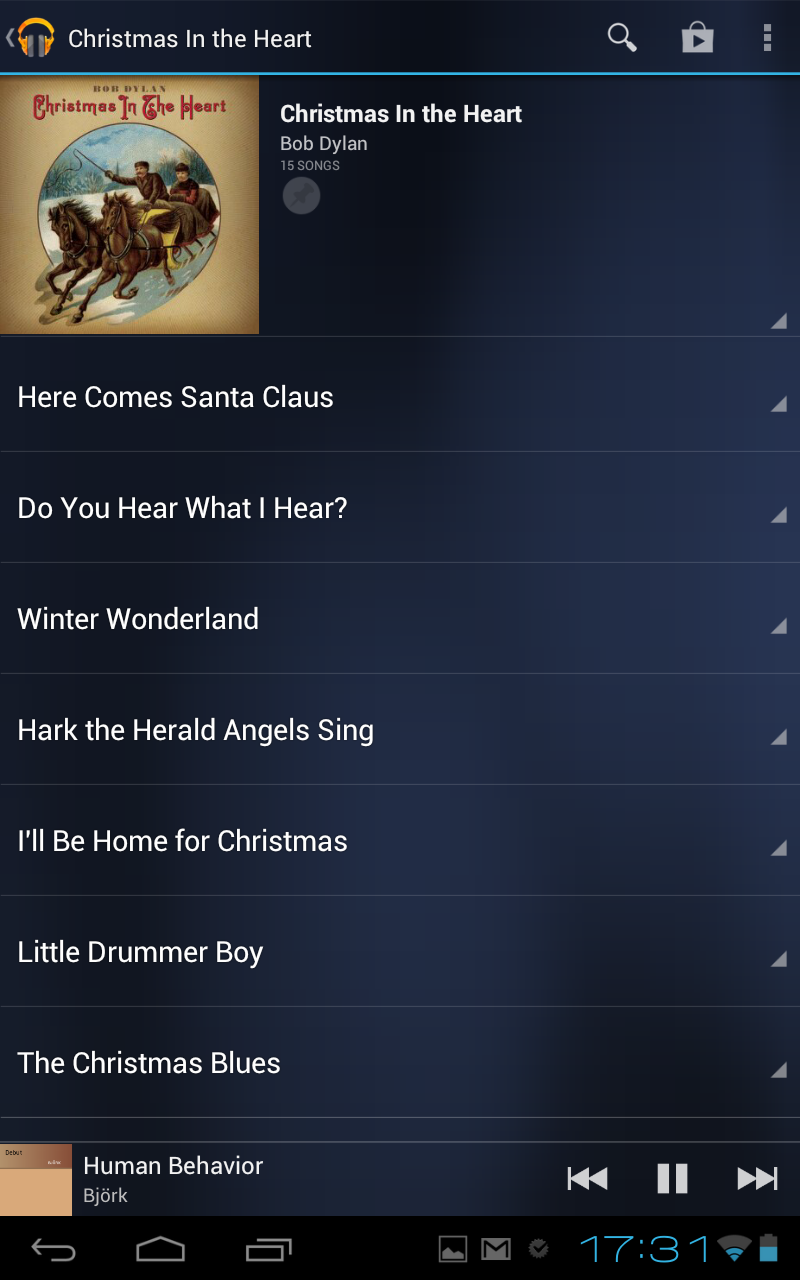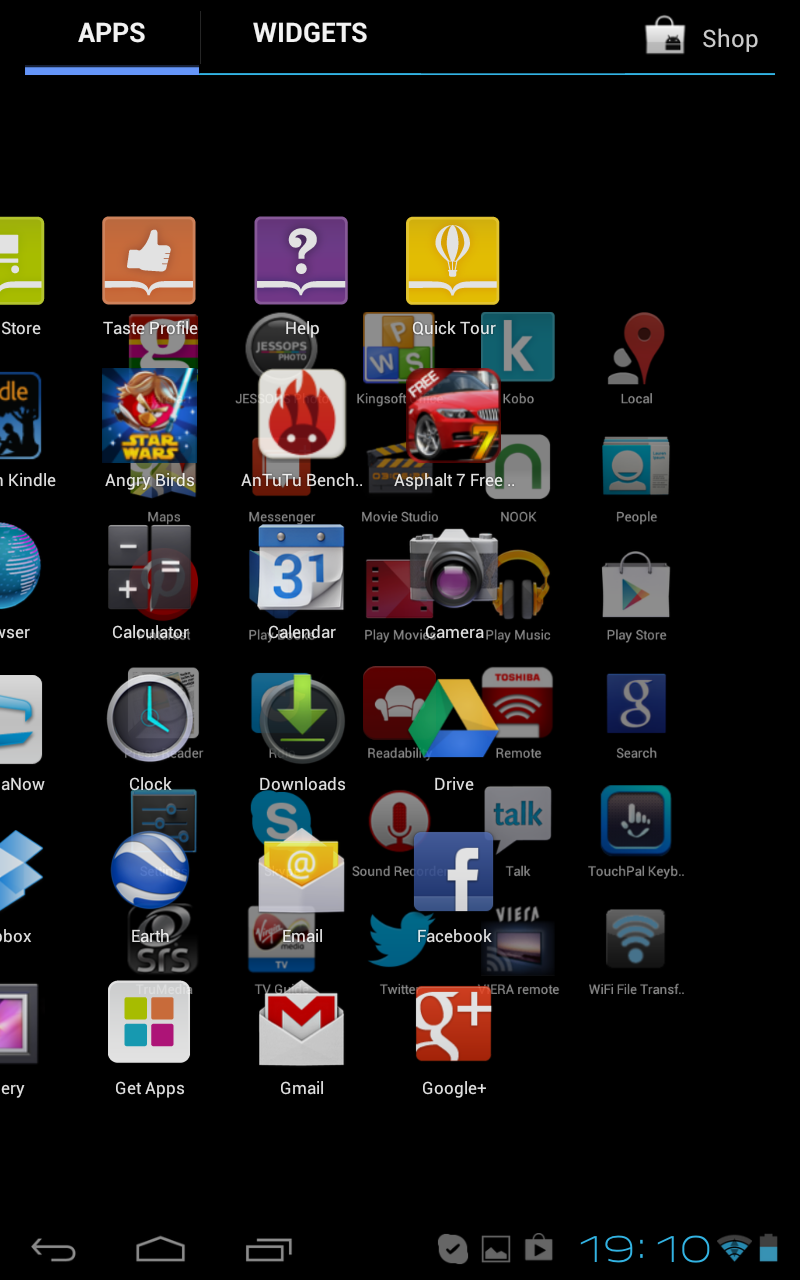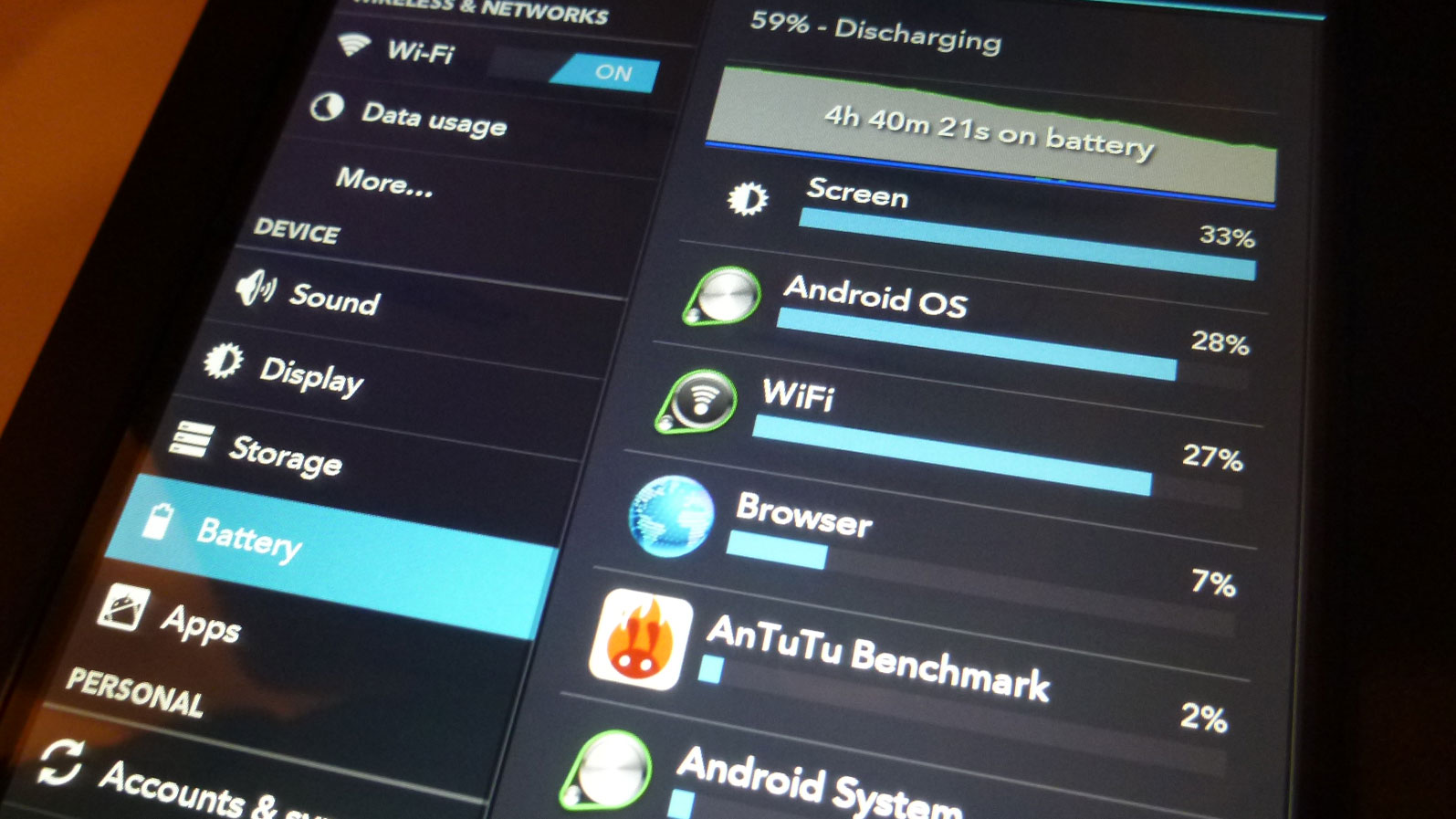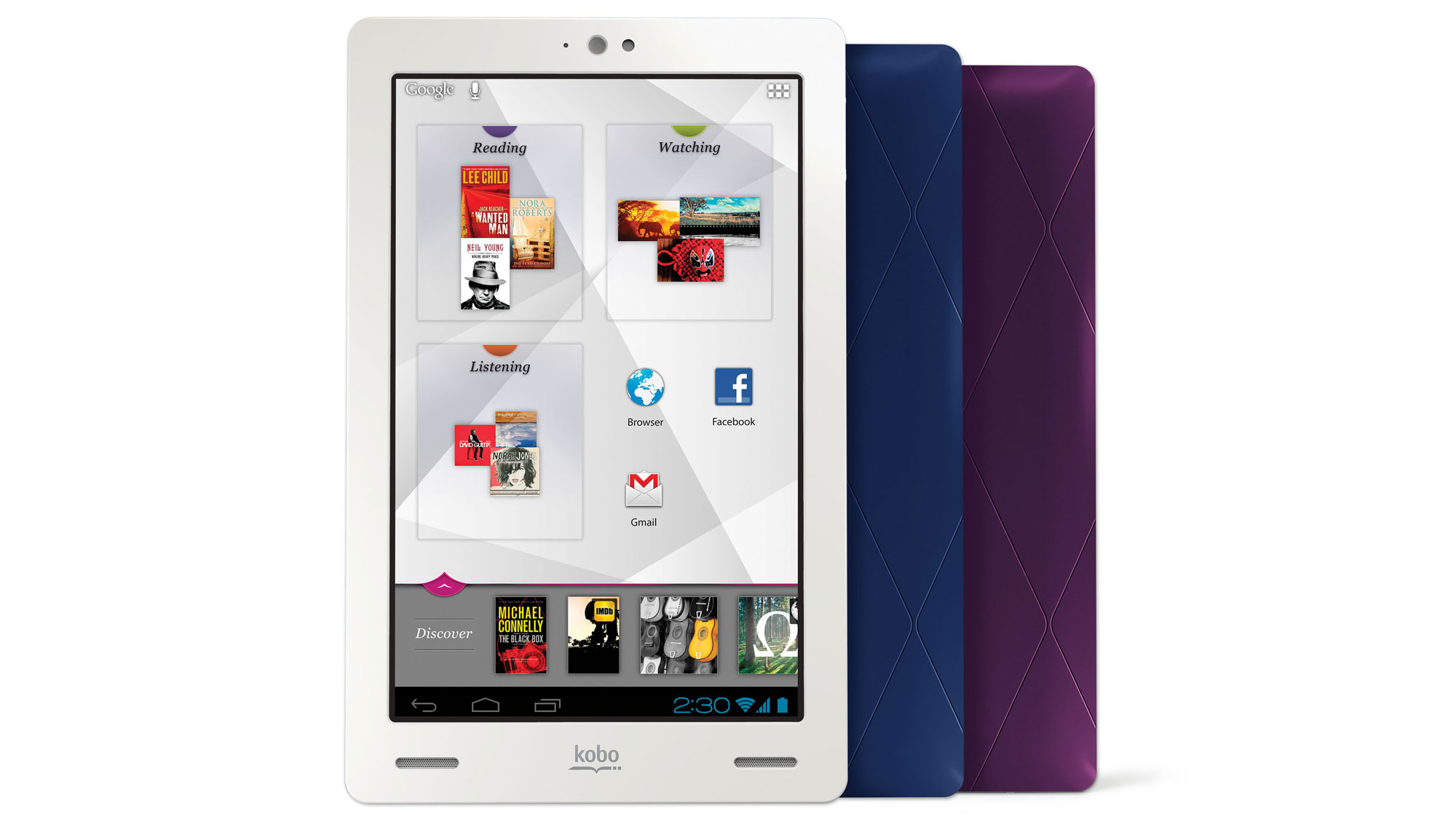Why you can trust TechRadar
Media
The Arc can play movies and music, but it's books that it's most concerned with. We've got no arguments with the way it presents its three million title+ Kobo Store library, with useful collections (such as Best of 2012: Fiction, Non-fiction Bestsellers & endless genres) provided alongside a simple title search option.

Reading Life, which collects data on your reading speed and progress through the books on your own device, is an acquired taste, though personally we found the 'time remaining' calculation for each book useful (if occasionally underlining just how time-consuming reading really is; Last Of The Mohicans apparently takes 41 hours, 25 minutes to read. Blimey).
It's a similar system to the one found on Amazon's Kindle Paperwhite, (and now the Kindle Touch too) where it also polarises opinion. However we think such data is great where it wasn't available before... and you can always turn it off.
SimpleTurn – page turns – is smooth, while there are myriad tweaks to fonts and spacing, while PDFs can be zoomed-in and out of dynamically.
While reading it's also possible to read comments left by others about particular passages or pages, though the feeling of community is slight indeed.
What the Arc doesn't do, when compared with the various Kindles, is enable the emailing of PDFs or e-books and kick-start a cloud sync.

Instead all files have to be manually transferred using the microUSB cable. However, the fact that the Kindle app can be downloaded and used freely on the Arc technically makes Amazon's tablet redundant in a sense, although the online retailer would probably argue it's giving content in a very different way.
Although the Arc does support ePUB books from any source (and it's possible to download then from Kobo's Store), the process is rather manual.
Not only is it necessary to hook-up the Arc to a PC or Mac, but from within the Library app it's then crucial to choose Import Content. The Arc then scans its own storage for files it can render, imports them, then deletes the originals.
As well as ePUB books, the Arc supports a fine collection of audio files, including lossless FLAC, OGG and WAV formats as well as the more common MP3, M4A and WMA.
Video-wise the Arc copes with just MP4 and AVI files, with which you can fill the 32GB or 16GB variants as you wish. Sadly it's not possible to play music while reading.
Apps and games

Unlike Kobo's debut tablet, the Vox, the Arc can also host any app from Google Play through its Gets Apps shortcut stored on the home page.
Accessible in a grid from the home page, the transition between pages of apps and widgets (clocks, bookmarks and links to apps you've left open) is smooth, while the likes of Gmail, YouTube and Google Maps are there by default, as is the excellent PressReader for newspaper and magazine subscriptions.
Apps for Kindle and Nook can be downloaded and easily pinned to the home page; it's even possible to replace, or relegate, the Kobo Store app.
The Arc also makes a good gaming platform. We downloaded the Angry Birds Star Wars app and found the Arc to be quick enough, while Drop proved the speed and accuracy of its accelerometer.
We were shown the 'Google Play Store has stopped' message a few too many times, usually when we were quickly downloading, opening and closing different games from Google Play. This isn't something we usually see on today's top-end tablets, and shows the rather meagre workings of the Arc's innards.
Battery life and benchmarks
Battery life is average for a tablet of this size; that is, it's limited and a great argument for the 'old' E-Ink displays.
Though the manufacturer quotes 10 hours of reading or video, we managed around six hours of mixed use, with the device losing around a fifth of its battery even on days when it wasn't used at all.
Perhaps most irritatingly of all, when it's run-down 70% of its battery an LED light starts flashing, which isn't appropriate for a device likely to be used to read books and hence left in sleeping areas. In a dark room it's infuriatingly bright.

We ran the Nyan cat test video for 90 minutes and found that the fully-charged Arc at full screen brightness dropped to 82% battery level, which is about the same as the Kindle Fire HD.
Sound quality, meanwhile, is pretty poor despite emanating from front-facing speakers; it's flat and lifeless, but OK for using on a desk.
Through headphones sound quality is acceptable, though lacks mid-range aid a treble-heavy vocal.
And now the benchmark tests: the AnTuTu app test produced an average score of 11,230 for the Arc (4.5/5 stars, and well above average for a tablet).
Accessed through the Arc's browser, the SunSpider Javascript benchmark test produced an average score of 1469ms, while PeaceKeeper browser speed test saw the Arc achieve an average of 637 – which is equal to the Samsung Galaxy S III, and more impressive than the Apple iPad mini (at 515), Google Nexus 7 (at 489) and Microsoft Surface (a paltry 348).
Jamie is a freelance tech, travel and space journalist based in the UK. He’s been writing regularly for Techradar since it was launched in 2008 and also writes regularly for Forbes, The Telegraph, the South China Morning Post, Sky & Telescope and the Sky At Night magazine as well as other Future titles T3, Digital Camera World, All About Space and Space.com. He also edits two of his own websites, TravGear.com and WhenIsTheNextEclipse.com that reflect his obsession with travel gear and solar eclipse travel. He is the author of A Stargazing Program For Beginners (Springer, 2015),

